Police Raid On Businesses Leads To Closure Of Major Tehran Mall
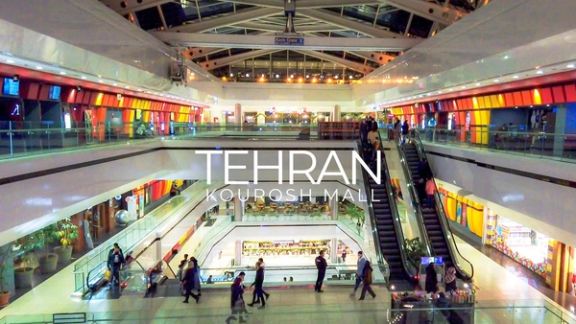
In the aftermath of a government crackdown on Kurosh Mall in the western part of Tehran, shop owners have made the decision to shutter their businesses.

In the aftermath of a government crackdown on Kurosh Mall in the western part of Tehran, shop owners have made the decision to shutter their businesses.
Reports suggest that authorities seized merchandise from stores, citing concerns related to smuggling and mandated that all items must be of exclusive Iranian origin, with no presence of recognizable foreign brands.
Social media users view the operation as another move by the clerical regime to tighten financial constraints on the public amid a severe budget deficit.
Iran is currently contending with a considerable infrastructure deficit amounting to $500 billion. The government's operating budget also faces a 50-percent deficit.
The economic challenges in Iran have deepened since the United States withdrew from the JCPOA nuclear accord in 2018 and imposed sanctions. However, the roots of Iran's economic struggles extend further, as the Islamic regime has failed to allocate its substantial oil export revenues towards adequate infrastructure and investments since the 1990s. Despite generating around $1.5 trillion from oil sales over the past two decades, the government now finds itself controlling over 80% of the economy and facing bankruptcy.
Constrained by US oil export sanctions, Iran sells crude at discounted rates to China, earning approximately $30 billion annually, with no significant revenues in hard currencies. The amount falls short of covering the government's annual budget, leaving no funds for essential long-term investments.
While some commentators in Iran, including certain regime politicians, attribute the current economic challenges to President Ebrahim Raisi's administration, this perspective often neglects the impact of the country's foreign policy, typically influenced by Supreme Leader Ali Khamenei.
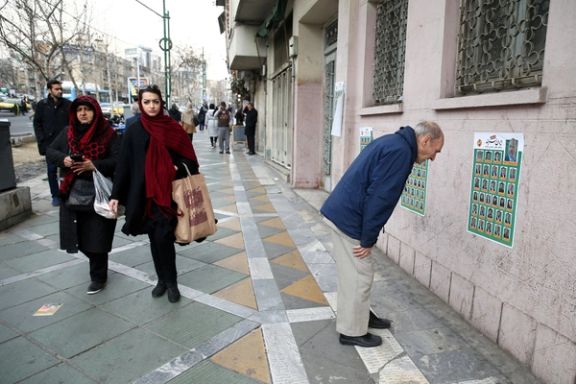
Less than 45 days before Iran's parliamentary elections, it appears that only a small segment of the reform camp is likely to take part in the restricted competition.
The interior ministry and the Guardian Council that vet candidates, have disqualified almost all so-called reformist and moderate candidates, paving the way for ultraconservatives to win a majority.
The left wing of reformist parties, including the Unity of Nation party, still insist that the restrictive policies of hardliners makes competition almost impossible. However, some conservatives, including Hamid-Reza Taraghi, a member of the Central Council of the conservative Islamic Coalition Party claims that reformists will present a full list of their candidates for the March 1 elections.
Like most regime politicians who have little if any idea of what a fair political competition means, Taraghi says that anyone or any group that seeks a share of political power is opposed to the formation of a strong parliament.

Nonetheless, his argument about reformists coming to the scene with full lists may carry some truth as Javad Heravi, the Spokesman for the Moderation and Development Party, which is close to former President Hassan Rouhani, told the press on Monday that the party will not venture into the elections without a full list of candidates. The party had announced earlier that it might nominate only 16 candidates for the 30 seats in Tehran as not enough of its members have been approved by the government to run for parliament.
Heravi added that there is no point in continuing consultations with the predominantly conservative supervisory institutions that vet the candidates. He said: "We had some 200 candidates but many of them have been disqualified and we have less than 100 candidates left." He added, "The ruling minority in Iran is saying very clearly that they do not want a high turnout in the elections."
He also said that his party might form a coalition with other likeminded groups to present a list of 30 candidates for Tehran and a full list for other constituencies. The Moderation and Development Party and another centrist party, the Executives of Construction, appear to be the only pro-reform parties that are keen to take part in the elections.
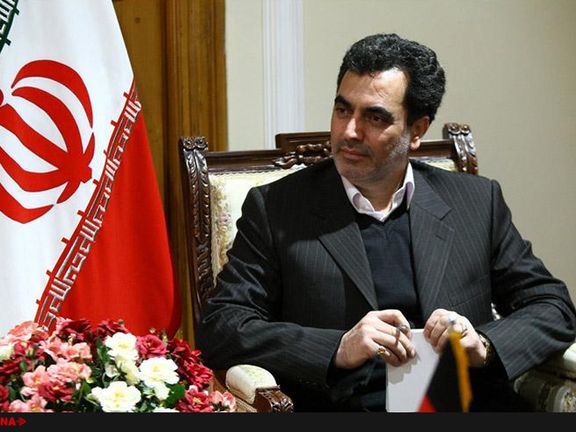
Meanwhile, Esmail Gerami-Moghaddam, the spokesman for the reformist National Trust Party stated that although many of its members had registered their candidacy, the number of those whose qualifications have been endorsed by the Guardian Council is so small that the party is not able to nominate any candidates in 90 percent of constituencies. He emphasized that nearly all of the candidates whose qualifications have been endorsed belong to conservative parties.
Meanwhile, conservative politician Amir-Reza Vaez-Ashtiani argued that "Reformists know they do not have grassroot support. Radicals among them, including jailed former Deputy Interior Minister Mostafa Tajzadeh, and reformist theoretician Saeed Hajjarian are now part of the opposition." However, he said, "Moderates are different. They still believe in the revolution [Islamic Republic]."
In another development, reformist politician Gholamreza Ansari said that the Unity of Nation has a voters' base and its members are active all over Iran, but its leaders have brought the reform camp on the verge of dissolution, hoping that in this way this party standing alone can win more votes from among reform-minded voters.
Despite the arguments on both sides, it is not clear if the reform camp is really divided, or it is the government and its conservative supporters who are trying to portray it as a divided group. What is clear is the seasonal nature of all political parties in Iran that are absent for almost three and half years and become active only during the parliamentary or presidential elections.
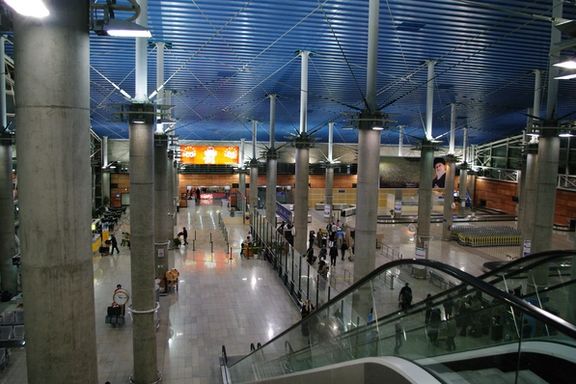
An Iranian labor official has raised concerns about the trend of skilled labor migration from Iran to other countries, including Iraq, Oman, and Turkey.
In a Saturday interview with Tasnim News Agency, Somayeh Golpour, the head of the Supreme Council of Workers' Guilds in Iran, emphasized that reports indicate a notable increase in migration, posing challenges to the country's workforce.
Golpour expressed her concern about the sluggish pace of replacing skilled workers and pointed out that, “paradoxically, even as investors show a preference for investing more in other countries, the replacement of the skilled workers remains slow within Iran.”
One significant factor contributing to the migration, according to Golpour, is the substantial disparity in minimum wages. She noted that when the minimum wage in destination countries reaches 250 to 300 million rials (500 to 600 USD), Iranian workers are drawn to migrate for better economic prospects.
Iranian workers are set to receive a government approved average salary increase of 20 percent starting in March, amid an annual inflation rate of around 50 percent.
The new minimum monthly wage has been set at 115 million Iranian rials or about 220 US dollars.
Attributing the migration phenomenon to low purchasing power, economic recession, reduced production, and liquidity issues in banks, Golpour identified them as key factors contributing to inflation in the country.
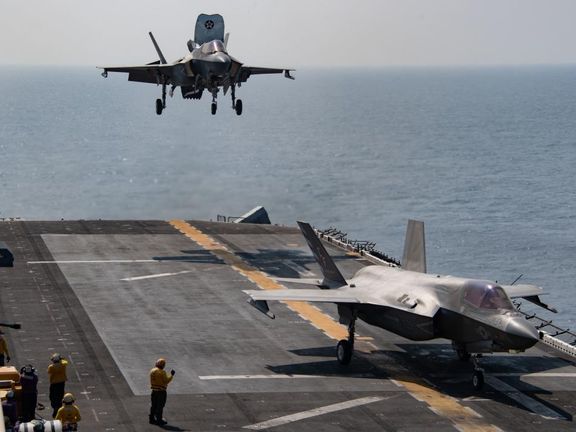
The United States launched another airstrikes on Saturday against a Houthi anti-ship missile aimed at the Gulf of Aden, Central Command announced.
"As part of ongoing efforts to protect freedom of navigation and prevent attacks on maritime vessels, on January 20 at approximately 4 a.m. (Sanaa time), US Central Command forces conducted airstrikes against a Houthi anti-ship missile that was aimed into the Gulf of Aden and was prepared to launch," CENTCOM said in a statement.
The decision to launch the airstrikes was prompted by an assessment that the Houthi missile posed a direct threat to both merchant vessels and US Navy ships operating in the region. The military emphasized that the destruction of the missile was undertaken in self-defense.
The primary objective of this action was to bolster the safety and security of international waters for both US Navy and merchant vessels, according to the CENTCOM.
The recent airstrike is part of a broader series of defensive strikes initiated against Houthi targets since January 12, as outlined by the Biden administration. The goal is to curtail the Houthis' capabilities to target vessels in the Red Sea, a crucial route for global oil and merchandise shipments.
The Iran-backed Houthi forces have been targeting commercial ships in the Red Sea and have issued warnings of potential attacks on all Israeli-bound vessels. The group claims the actions are expressions of solidarity with Palestinians facing what they describe as Israel's "aggression and siege" in Gaza.
Last month, US Defense Secretary Lloyd Austin announced the launch of Operation Prosperity Guardian, a multinational mission aimed at countering Houthi attacks and ensuring maritime security in the region.
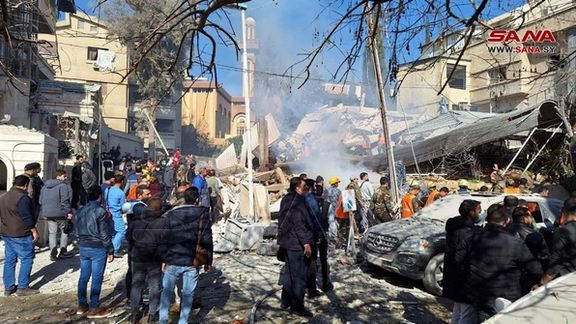
Iran’s Foreign Ministry has strongly condemned a suspected Israeli airstrike Saturday, which claimed the lives of three IRGC generals and two other officers in Syria.
Blaming the strike on Israel and calling it “criminal and aggressive,” the ministry’s spokesman Naser Kanaani urged the international community and the UN Security Council “to adopt a clear stance” and condemn the attack categorically.
The Islamic Republic reserves the right to respond to the offensive “at the appropriate time and place,” he went on to say.
Earlier in the day, Syria’s state-run SANA news agency reported, “An attack targeted a residential building in the Mazzeh neighborhood in Damascus, resulting from an Israeli aggression.”
The IRGC quickly confirmed in a statement that four of its forces lost their lives in the air strikes The slain IRGC officers were named as Hojatollah Omidvar, Ali Aqazadeh, Hossein Mohammadi and Saeed Karimi. A fifth IRGC officer identified as Mohammad-Amin Samadi later succumbed to his wounds and died.
Hojatollah Omidvar, also known as Haj Sadegh and Yousef Omidzadeh, served as the head of the IRGC Quds Force intelligence unit in Syria. According to Iranian state media, Omidvar’s deputy introduced under the pseudonym of “Haj Gholam” was also killed in the attack. It is not yet clear what his real name was.
In June 2023, the Washington Post reported that Omidzadeh “identified U.S. Humvee and Cougar armored vehicles in Syria” in order to target them. According to the report, he discussed assigning operatives to take photos from the roads that US forces in Syria used.
Meanwhile, Iran’s proxies Hamas and Palestinian Islamic Jihad condemned the Damascus attack. Hamas called it “the violation of the sovereignty of an Arab state” and Islamic Jihad accused Israel of attempting to expand the scope of war in the region.
Hours after the deadly incident, Iran-backed militant groups in Iraq launched rockets at Assad Air Base in the western province of Anbar, where US forces are stationed. They sustained no serious injuries in the attack, but several Iraqi troops were wounded.
“This could be Iran’s Axis of Resistance retaliating for the earlier strikes by Israel killing IRGC officers in Syria,” Jason Brodsky, Policy Director at United Against Nuclear Iran (UANI), wrote on X.
Though the Iranian regime has avoided any direct military involvement in the Gaza war, Tehran has used its proxy groups in the region such as Houthis and Hezbollah to attack Israeli and American targets. Yemeni Houthis, in particular, have disrupted regional stability and international trade by targeting shipping lanes in the Red Sea, the Gulf of Aden, and the Bab el-Mandeb Strait.
The Iranian parliament also responded to the killings of IRGC commanders. Parliamentary Speaker Mohamad Bagher Ghalibaf warned that “a severe punishment” awaits Israel as “the warriors will certainly retaliate this crime.”
Esmail Kowsari, a former IRGC general and member of parliament’s National Security and Foreign Policy Commission, confirmed that the whereabouts of the slain commanders in Syria were identified. Kowsari called for the arrest of “spy agents” in Damascus, adding that Israel has had “agents” in Syria, Lebanon and other neighboring countries since the past.
In December, Razi Mousavi (aka Seyyed Razi) was killed in an alleged Israeli airstrike near Damascus. He headed IRGC’s ‘logistics’ and military coordination in Syria, getting weapons for and coordinating Iran-backed forces in Syria and Lebanon.
The Islamic Republic has repeatedly threatened Israel with severe punishments over its alleged role in the killings of IRGC commanders and forces in the region. However, Tehran has refrained from a direct attack against Israel.
Earlier in the week, the IRGC attacked Iraq’s Kurdistan region in what it called an attempt to target Israeli agents. Iran’s missiles hit a civilian house in Erbil belonging to Peshraw Dizayee, killing him and 4 members of his family. Dizayee was a business mogul and head of Falcon Investment Group. Following the raid, IRNA, the Iranian state news agency, released a report that accused Dizayee of collaborating with Israel. Kurdistan officials and the Iraqi government have both rejected the allegation.
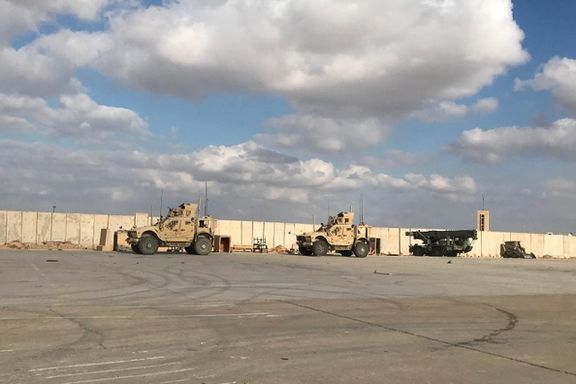
Iran-affiliated militias in Iraq have fired a large number of rockets at the Ain Al-Asad military base hosting US troops on Saturday, Iraqi media reported.
Reuters quoted a US official as saying that American personnel suffered minor injuries and a member of Iraq's security forces was seriously wounded in an attack citing initial assessments, which are subject to change. Some reports later said several Iraqi troops have been wounded.
The attack came after an Israeli air strike killed five officers of Iran’s Revolutionary Guard (IRGC) in Damascus. Among those who died when a building was targeted by precision munitions, was Hojjatollah Omidvar or Hajj Sadegh, a senior Quds Force general, and apparently a senior intelligence officer.
The official, who spoke on condition of anonymity to Reuters, said initial reports indicated that the base was hit by ballistic missiles but left open the possibility the base was hit by rockets, adding an assessment was ongoing.
Iran’s proxy forces in Iraq and Syria have launched around 140 attacks against US forces in both countries since mid-October in retaliation to US support for Israel. The Biden administration has retaliated on a few occasions, but it is not clear how it would respond to this latest attack.
Iran's Foreign Ministry spokesman Naser Kanaani condemned the airstrike in Damascus blamed on Israel saying the Islamic Republic reserves the right to respond to Israel "in an appropriate time and place."